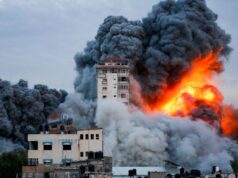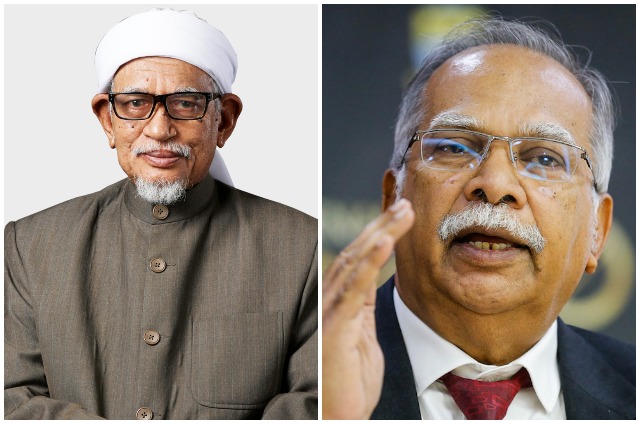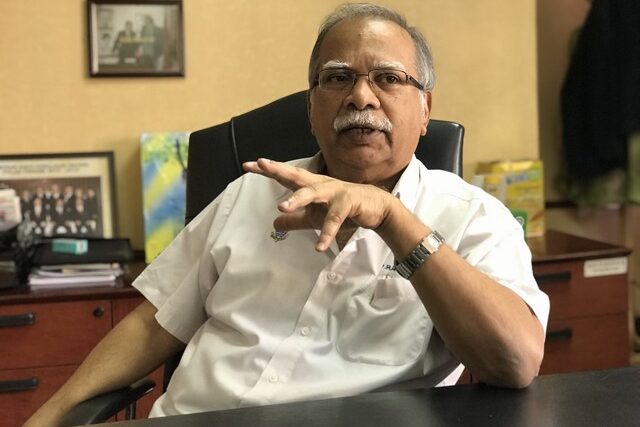

Egypt later called for a resumption of the ceasefire, saying only a few points remained to be agreed. Palestinian factions said they would meet Egyptian mediators later in the day but there was no sign of any imminent deal.
An Israeli government official said Israel would not negotiate with Palestinians while militants continued to unleash missiles. As warning sirens sounded in southern Israel, the military said “Gaza terrorists” had fired at least 57 rockets on Friday and the “Iron Dome” interceptor system had been used against some of them.
Islamic Jihad and the Popular Resistance Committees claimed responsibility for the salvoes from the Hamas-dominated enclave. Accusing Hamas of breaking the ceasefire, Israel said several of the rockets had been launched about four hours before the truce was due to end at 8 a.m. (0500 GMT).


In the first casualties since hostilities resumed on Friday, Palestinian medical officials said a 10-year-old boy was killed in an Israeli strike near a mosque in Gaza City. An Islamic Jihad militant and three other Palestinians were killed in attacks from the air in the southern Gaza Strip.
In Israel, police said two people were injured by mortar fire from Gaza. Israel’s armed forces said they had responded to the cross-border attacks by targeting 51 “terror sites” across the Gaza Strip, including rocket launchers and military compounds and headquarters, and would continue to strike Hamas and its infrastructure and operatives.
Israeli Justice Minister Tzipi Livni, a member of Prime Minister Benjamin Netanyahu’s security cabinet, said on Channel 2 television that Gaza militants “have to get hit in return, and not in the same proportion, but to a greater degree”.


U.N. Secretary-General Ban Ki-moon said in a statement he was deeply disappointed an extension of the ceasefire could not be agreed, and he condemned the renewed rocket fire on Israel.
“The Secretary-General firmly calls on the parties not to resort to further military action that can only exacerbate the already appalling humanitarian situation in Gaza,” it said. Israel had earlier said it was ready to agree to an extension as Egyptian go-betweens pursued negotiations with Israeli and Palestinian delegates.
Hamas spokesman Sami Abu Zuhri said Israel had rejected most Palestinian demands. “However, we did not close the door and will continue with the negotiations,” he said.


The Palestinians had wanted Israel to agree in principle to demands which include lifting the blockade of the Gaza Strip, the release of prisoners and the opening of a sea port, but this had been rebuffed, Abu Zuhri said.
Israel has shown little interest in easing its naval blockade of Gaza and controls on overland traffic and airspace, suspecting Hamas could restock with weapons from abroad.
Livni said the issue of a sea port should be part of wider final-status peace negotiations with the Palestinians and that Hamas, in the current indirect talks mediated by Egypt, should not be rewarded for “using force against Israeli citizens.”


In Gaza, some families who had returned to their homes in the northern town of Beit Hanoun during the ceasefire gathered their belongings and headed back to the United Nations shelters where they had sought refuge over the past few weeks.
Beit Hanoun resident Yamen Mahmoud, a 35-year-old father of four, said: “Today I am fleeing again. I am not against resistance but we need to know what to do. Is it war or peace?”
Gaza officials say the war has killed 1,880 Palestinians, most of them civilians. Hamas said on Thursday it had executed an unspecified number of Palestinians as Israeli spies. Israel says 64 of its soldiers and three civilians have died in the fighting that began on July 8, after a surge in Palestinian rocket salvoes into Israel.
It expanded its air and naval bombardment of the Gaza Strip into a ground offensive on July 17, and pulled its infantry and armour out of the enclave on Tuesday after saying it had destroyed more than 30 infiltration tunnels dug by militants.


A source at Cairo airport said the Israeli delegation left shortly before the truce expired. “Despite being in Cairo for a week to negotiate, we have not heard Israel’s view on this demand or that demand, we’ve only heard it through the media.
I say this is wrong,” senior Fatah leader Azzam al-Ahmed, who heads the Palestinian negotiating team, told reporters in a hotel in the Egyptian capital. “We present demands that have to do with stopping the war. We hope these demands are met.
It would pave the way for a political process that would end the violence and the war and end the bloodshed,” he said. In the occupied West Bank on Friday, a 20-year-old Palestinian was shot dead during an anti-Israeli protest outside the settlement of Psagot, the Palestinian ambulance service said.
A military spokeswoman said troops first used riot control methods but then opened fire, “confirming a hit”, after stone-throwing protesters reached the settlement’s fence.
-INDIA TODAY










